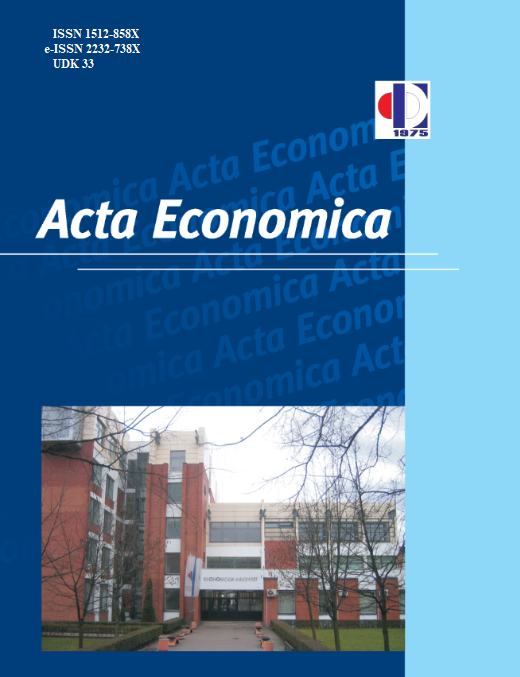ECONOMIC INEQUALITY AND POVERTY IN EUROPEAN UNION
DOI:
https://doi.org/10.7251/ACE1931107SAbstract
Excessive accumulation and raising income inequality re- flected on the high rates of poverty in the European Union countries. Economic literature has wide research on the link between income inequality and economic growth. However, knowledge about correlation between income inequality and poverty is scare. In this paper, we have proved that poverty is not synonymous for income ine- quality, but that is a product of income inequality. Income inequality, measured by the Gini coefficient, reflected the movement of the percentage of the population who are at risk of poverty. The coefficient of simple on correlation showed that income inequality affects the growth risk of poverty in the countries of the European Union. Besides poverty, as a consequence of income inequality, other socio-economic problems also appeared: the suppression of economic growth, the rise in crime rate, the decline in the quality of education and health, the political inequal- ity growth. All these problems should warn governments to take economic policy for reducing economic inequal- ity. The European Union, as an area of 28 member states, needs to carefully select economic policy instruments to reduce income inequality and ensure stable ground for economic growth. The differences between the level of development, the index of democracy, income and liv- ing standards in observed countries have influenced the difficulty in observing the problem and computing math- ematical and statistical connection. Through equalization of incomes, the European Union could solve problems of poverty, social exclusion and democracy (measured by index of democracy).

